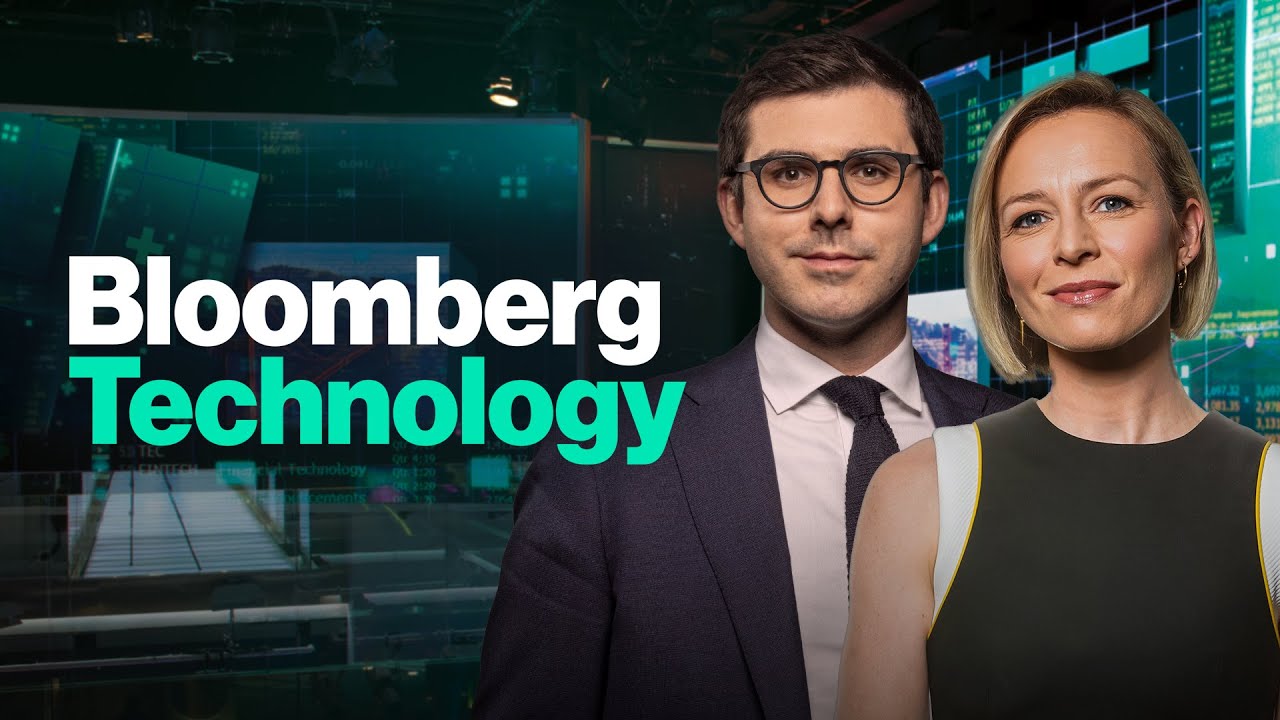The video covers recent developments in the tech industry, including Apple’s focus on developing AI server chips and custom silicon, Lyft’s growth strategies and autonomous vehicle plans, and the ongoing regulatory and legal challenges faced by major tech giants like Meta and Google. It also highlights market impacts from geopolitical tensions, trade tariffs, and mixed earnings reports across entertainment and streaming sectors.
The Bloomberg Technology segment covers a wide range of current tech and market developments. It begins with geopolitical tensions, highlighting President Trump’s consideration of imposing an 80% tariff on Chinese goods ahead of trade negotiations, which could significantly impact global markets. The discussion emphasizes the potential for tariffs to discourage trade, with companies like Apple working to shift supply chains to reduce exposure to China. Market movements are relatively calm, but the tariff narrative remains a key driver influencing stocks such as Tesla, which has seen gains amid hopes of improved trade relations.
Apple is actively developing new chips for future devices, including smart glasses, powerful Macs, and AI servers. The company is designing custom processors based on its own architecture, primarily fabricated by TSMC, to enhance power efficiency and control multiple cameras on wearable devices. This move aligns with Apple’s broader strategy of in-house silicon development, moving away from Intel and leveraging its own design capabilities to maintain a competitive edge in hardware innovation. The segment also notes the company’s ongoing efforts to develop augmented reality products and the importance of custom silicon in their ecosystem.
Lyft’s CEO discusses the company’s strong first-quarter results, including better-than-expected gross bookings and an expanded share buyback program. Lyft is focusing on expanding into less saturated markets where ride-sharing is less prevalent, aiming to grow its user base and profitability. The CEO emphasizes the company’s customer obsession and plans to develop autonomous vehicle pilots, starting with confidence drivers in select cities, to improve service and prepare for a driverless future. The company remains optimistic about its growth prospects despite macroeconomic uncertainties, with a strong balance sheet and cash flow supporting future investments and potential mergers.
Other earnings reports reveal mixed signals in the streaming and entertainment sectors. Disney outperforms expectations with revenue growth driven by its diverse assets and content, while Paramount and Warner Bros. Discovery face challenges with declining revenues and uncertain prospects for their streaming businesses. The segment discusses the impact of potential tariffs on film production, noting that movies made offshore could face higher costs if tariffs are implemented, which could hinder the industry’s recovery and international content strategies. The overall outlook suggests streaming remains a bright spot, but content quality and production costs are critical factors for future success.
The segment concludes with updates on ongoing antitrust cases involving major tech giants like Meta and Google. The FTC’s efforts to break up Meta focus on its dominance in social media, with evidence of past investigations into child safety and platform quality. Meanwhile, the trial against Google explores whether its search monopoly should be dismantled, with testimony indicating that future search innovations like AI could reshape the market. The discussions highlight the regulatory pressures facing these companies and the potential for significant structural changes in the tech landscape, amid a turbulent week marked by geopolitical tensions, market volatility, and legal challenges.
